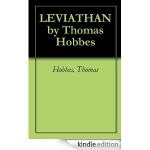|
This section contains 278 words (approx. 1 page at 400 words per page) |

|
Part 1 Chapters 6 & 7 Summary and Analysis
Hobbes writes about voluntary and involuntary motion. The latter is breathing, blood flow, and other bodily functions. Motion is also expressed through feelings like desire, appetite, love and hate. People are born with some appetites and aversions and others are developed throughout life. Then there are some things people simply do not have any logical reaction to or feeling about, but which they hold in contempt. We are moved by something when we see an external object and react to it.
All discourse has an end. The end is reached when a person learns the answer to a question or because they have given up. Some discourse is merely opinion because the end can never really be known, such as really knowing if God exists or not. Hobbes writes that a person's faith in God is only as strong...
(read more from the Part 1 Chapters 6 & 7 Summary)
|
This section contains 278 words (approx. 1 page at 400 words per page) |

|




